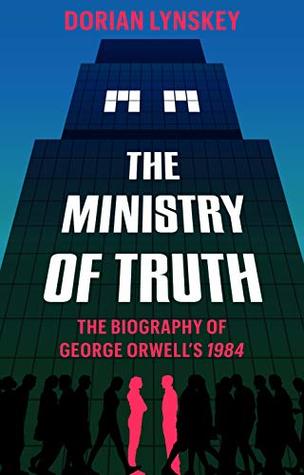More on this book
Community
Kindle Notes & Highlights
Read between
July 15 - July 16, 2019
The ex-communists had broken out of the syllogism that bound so much of the left to Stalin: I believe in socialism; the USSR is the only socialist state; therefore I believe in the USSR.
His team found that the people most likely to believe the broadcast without checking other sources were the intensely religious, the anxious and the economically insecure, because it confirmed the fear and lack of control that they already felt.
“The evident connection between personal unhappiness and readiness to believe the incredible is its most interesting discovery,” Orwell wrote. “It is a similar frame of mind that has induced whole nations to fling themselves into the arms of a Saviour.
The proles are lulled into apathy by a steady diet of movies, pulp fiction, pornography, horoscopes, football, beer, gambling and sentimental songs. This is their soma.
“Optimism is relative,” Atwood said. “Glimmers are good. Happily ever after we don’t believe anymore, but we can live with glimmers.” So that’s the Appendix Theory.
In early drafts, the drowning refugees that Winston sees in a newsreel are targeted because they are Jewish
Lord Beaverbrook, the belligerently right-wing newspaper baron whom Orwell had memorably described as “looking more like a monkey on a stick than you would think possible for anyone who was not doing it on purpose,”
Orwell, who made clear in his essay on Koestler that one can reject the possibility of paradise on Earth without giving up on the idea that life can be improved.
If people think I am defending the status quo,” he told Macdonald, “that is, I think, because they have grown pessimistic and assume that there is no alternative except dictatorship or laissez-faire capitalism.”
Orwell was looking for a third way, dominated by neither America nor Russia. He hoped for a socialist United States of Europe:
Annoyed by Labour’s failure to immediately do away with the House of Lords, the honours system and private education
One of McCarthy’s malign innovations was to successfully operate a quasi-totalitarian disregard for the truth by exploiting democracy’s weaknesses. Ostensibly, he and the press were bitter enemies. He compared Time and Life to The Daily Worker, singled out a reporter for abuse in front of a jeering crowd, and once ranted about his mistreatment by the press to an audience of bewildered schoolchildren.
Orwell’s line about the future belonging to “the holiday camp, the doodle-bug and the secret police” could almost have been a blueprint for the Village’s very English totalitarianism, which masks its oppressive violence with a brisk cheerfulness.
Visiting the country in May for The Daily Telegraph, Peregrine Worsthorne advised readers to be “more openminded,” because despite the murders, tortures and disappearances, Pinochet’s junta wasn’t as bad as all that.
By definition, a country in which you are free to read Nineteen Eighty-Four is not the country described in Nineteen Eighty-Four.
When President Trump’s adviser Kellyanne Conway first used the phrase “alternative facts” on January 22, 2017, Nineteen Eighty-Four came roaring back onto the best-seller lists.
It must be said that Donald Trump is no Big Brother. Nor, despite his revival of such toxic phrases as “America First” and “enemy of the people,” is he simply a throwback to the 1930s. He has the cruelty and power hunger of a dictator but not the discipline, intellect or ideology.
During the 2016 election campaign, the Internet Research Agency, a Russian troll farm, flooded social media with fake news stories designed to generate confusion, cynicism and division. One of the agency’s popular memes read: “The People Believe What the Media Tells Them They Believe: George Orwell.” The quotation was fabricated. Orwell never used the phrase the media, which did not enter common usage until after his death, and he would never have made such a simplistic claim. The irony of Russian propagandists putting words into Orwell’s mouth in order to hijack his prestige as a truth-teller
...more
America’s epistemological crisis was Trump’s golden opportunity. He could only win the 2016 election because a significant number of Americans were effectively living in a parallel reality.
It is truly Orwellian that the phrase “fake news” has been turned on its head by Trump and his fellow authoritarians to describe real news that is not to their liking, while flagrant lies become “alternative facts.”
Trump’s lawyer Rudy Giuliani accidentally provided a crude motto for Versionland USA when he snapped at an interviewer, “Truth isn’t truth!
As he wrote in his preface to Animal Farm, liberal values “are not indestructible, and they have to be kept alive partly by conscious effort.”
May we all live to see better times.


